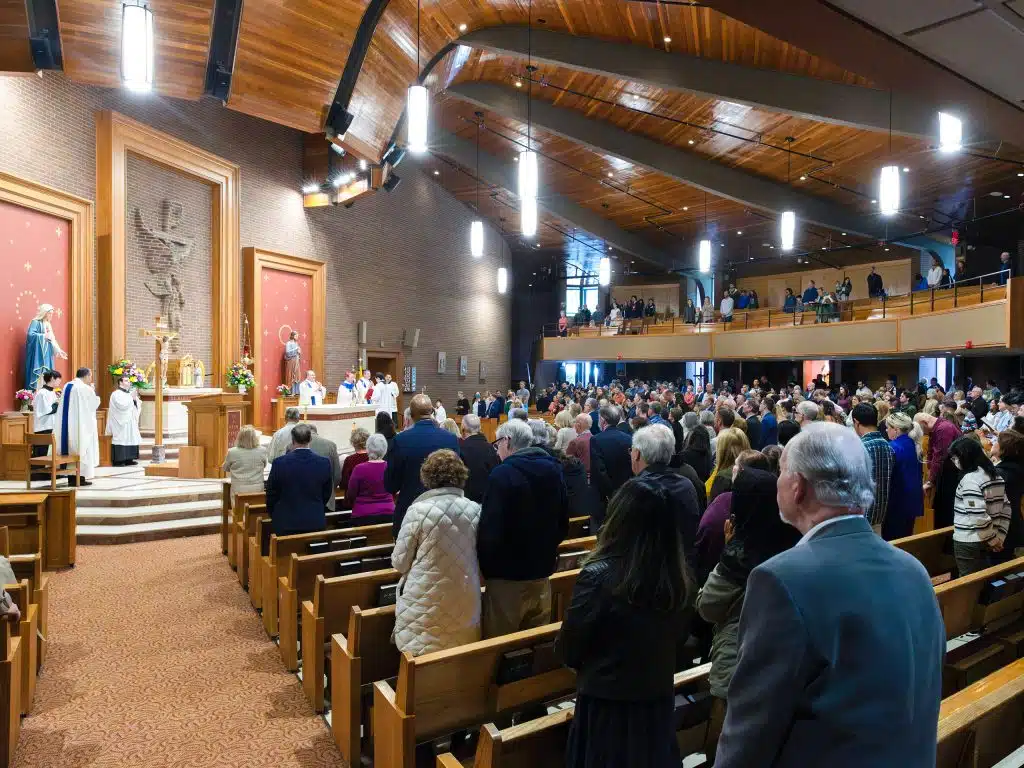During the month of November, the Catholic Church asks the faithful to spend 30 days praying for the dead.
Pope Francis has underscored this directive: “Church tradition has always urged prayer for the dead, in particular by offering the celebration of the Eucharist for them: It is the best spiritual help that we can give to their souls, particularly to the most abandoned ones.”
I’ve always felt drawn to this practice. Maybe it’s my more melancholic nature, or the fact that as a Northeasterner, the bleak November sky and bare trees create the quintessential backdrop to reflect on life’s ultimate questions. (My mother always warned me, “Never make any big decisions during November or February.” It’s been good advice).
I’ve been wondering, though, whether this practice is still widely embraced, and what we lose if we give it up.
The language used at Catholic funerals — outside of the words of the rite — is often quick to place the deceased in heaven. This is not to say that it’s always inaccurate: We do believe that some people die in perfect friendship with God, including those who are not canonized.
But we also believe in a final purification, more commonly known as purgatory. The Catechism of the Catholic Church states, “All who die in God’s grace and friendship, but still imperfectly purified, are indeed assured of their eternal salvation; but after death they undergo purification, so as to achieve the holiness necessary to enter the joy of heaven.”
I’ve always been curious about (and if I’m being honest, a bit afraid of) this prospect.
While studying the history of Christian spirituality in graduate school, that curiosity got the better of me. I decided to take up the question of purgative suffering for my master’s thesis. Ninety-eight pages later, I better understood this from Pope Benedict XVI: “Purgatory basically means that God can put the pieces back together again.”
So what will it be like? As when speaking about anything divine, we have to rely on image, analogy and metaphor.
According to St. Catherine of Genoa, a mystic known for her vision of purgatory, it will be a type of fire, though not like that used to describe the experience of hell.
“Rust which is sin, covers souls, and … is burnt away by fire, the more it is consumed, the more the soul responds to God. … As the rust lessens and the soul is opened to the divine rays, happiness grows,” she wrote.
Fire has a lot of effects: light, heat, warmth and destruction. But when a precious metal is placed in its midst, it’s purified and perfected.
Purgatory is a letting go of habits, vices and ways of thinking or knowing that prevented us from loving as we ought during our lifetime.
The poet Dante likened the soul’s experience in purgatory to climbing a mountain, the summit being paradise. The climber might have to shed things that are bogging him down on the ascent. That process, of course, can be grueling, but with every step, one moves closer to the goal.
If the souls in purgatory are on their way to heaven, why do we pray for them? In his encyclical on hope, “Spe Salvi,” Pope Benedict XVI gives us more answers:
“If ‘purgatory’ is simply purification through fire in the encounter with the Lord, Judge and Savior, how can a third person intervene …? … No one lives alone. No one sins alone. No one is saved alone. The lives of others continually spill over into mine: in what I think, say, do and achieve. …
“And for that there is no need to convert earthly time into God’s time: In the communion of souls simple terrestrial time is superseded. It is never too late to touch the heart of another, nor is it ever in vain. … As Christians we should never limit ourselves to asking: How can I save myself? We should also ask: What can I do in order that others may be saved and that for them too the star of hope may rise?”
I think the most comforting line at a Catholic funeral is this: “Life is changed, not ended.”
For those missing loved ones this month, be assured that the change is for the better and the veil between us is very thin.
Ureneck, associate director of the Center for the Church in the 21st Century at Boston College, writes the “Finding God in All Things” column for Catholic News Service.


